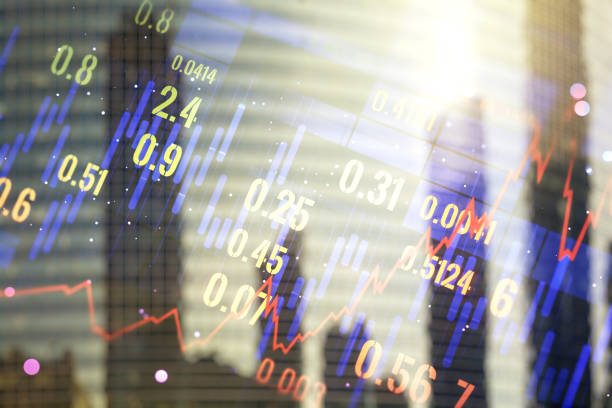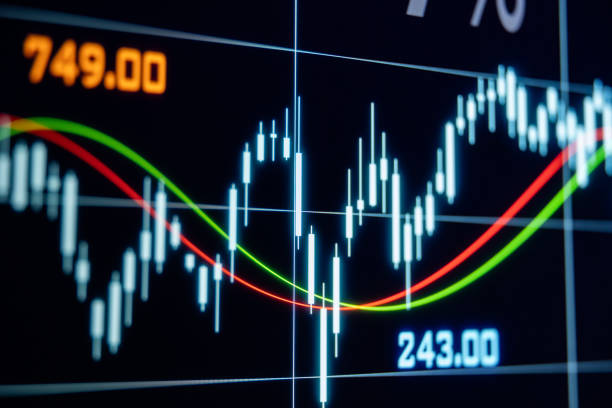The Bottom Line: Recent sustainable fund annual or semi-annual report filings that disclose performance results and offer commentary on sustainable investment strategies, decisions and outcomes.
Note of Explanation: The commentary appearing in this document represents excerpts taken from selected semi-annual and annual reports recently published by sustainable mutual funds and exchange-traded funds (ETFs). The intention of the Round Up is to track relevant commentary and performance results provided by funds that pursue sustainable investing strategies across varying sectors and asset classes in an effort to better understand how such strategies are directly affecting investment decisions, performance results achieved during the covered reporting periods and, to the extent relevant, any information regarding positive societal outcomes or impacts achieved through the implementation of these sustainable strategies. These are juxtaposed against the fund’s sustainable investing strategy. Interested readers should consult the funds’ annual and semi-annual reports for the complete text of management’s discussions of investment outlook and fund performance.
The Round Up is not intended to cover all semi-annual and annual reports filed during the course of the month, but rather to offer a sampling by various sustainable funds in their respective sectors.
Fund Name: UBS Engage for Impact Fund
Fund Advisor: UBS Asset Management (Americas) Inc.
Filing: Semi-annual report as of December 31, 2019, filed March 3, 20120.
Fund’s Sustainable Investing Strategy: Exclusions, Impact, ESG Integration, Engagement[1]
The Bottom Line: Sector allocation and stock selection aligned with the fund’s overarching impact orientation, including stocks avoided, led to underperformance in the short six month period and since inception for fund that commenced operations on October 24, 2018.
Fund’s Semi-Annual Report Commentary:
Portfolio performance
For the six months ended December 31, 2019, Class P shares of UBS Engage for Impact Fund returned 6.39%. The fund’s benchmark, the MSCI All Country World Index (net), returned 8.92% over the same time period. The fund posted positive absolute returns and underperformed its benchmark during the reporting period. This was driven by weak sector allocation. Stock selection was slightly negative.
What worked:
Stock selection within the industrials and consumer discretionary sectors contributed positively to Fund performance during the reporting period. The Fund’s relative overweight to the health care sector contributed positively, as well.
Several individual stock positions were positive for relative performance.
-
- New Oriental Education continued on its positive trajectory, as demand for a higher level of literacy and private tutoring is on the rise in China. The tutoring market is highly related to China’s urbanization progress, and is still in a huge up-cycle for development.
- Prysmianposted solid results for the second quarter of the year, including adjusted earnings before interest, tax, depreciation and amortization (EBITDA) that was about 5% ahead of consensus. In November, Prysmian announced the final commissioning of a major project, a significant positive, which helped cash flow and allowed the group to shift resources to other projects. Prysmian is strongly cash generative, due to low capital expenditure requirements and prepayments on large turnkey contracts. The company’s Draka deal provided significant opportunities for synergy, and helped with further expansion of profit margins. We believe the acquisition of General Cable should offer similar opportunities, as Prysmian’s management has a good track record of adding value through industry consolidation.
- LKQ‘s share price increased beginning in September, after management updated investors on its European restructuring plans, which call for a significant expansion of profit margins. We believe the plan is achievable because it will be managed by the new CEO of Europe. LKQ is also being engaged by an increasingly active set of shareholders, who are pushing for operational improvements as well as possible divestitures of non-core businesses. We believe these developments have the potential to unlock value for the company.
What didn’t work:
Stock selection in financials and health care detracted from Fund performance during the six-month period. The Fund’s relative underweight to the information technology sector also detracted from relative performance.
-
- Certain stock selection decisions made a negative contribution to relative performance.
- The Fund suffered from not owning Apple, the largest stock in the benchmark. Apple’s shares were lifted by expectations of strong holiday sales, as well as October results which were boosted by Services, Wearables and iPad sales. We do not believe Apple qualifies for this fund, as the technology giant does not derive revenues from impactful product and services.
- The share price of KasikornBankdecreased over the six months ended December 31, 2019, following the release of second quarter 2019 earnings, which showed loan growth and non-interest income growth below guidance. We continue to hold this security.
- Centricawas a top detractor to performance over the period. Our initial thesis on the company was based around our expectation that Centrica could maintain market share leadership while significantly reducing costs. While Centrica was rated in the top decile on environmental, social & governance (ESG) scoring, our view was that there needed to be improvements in management of the business, and we had been extensively engaging with the board to encourage change at the beginning of 2019. Hence, the departure of the CEO in June was both expected to us and a desired outcome. The company’s additional restructuring costs, however, were not expected, and had a detrimental impact on our initial thesis. Although the stock was trading well below our previous fair value estimate, we sold out of it late in the summer due to our lack of confidence in the ability of management to execute on the restructuring plan.
Fund Name: Vanguard Global ESG Select Stock Fund
Fund Advisor: Wellington Management Company LLP
Filing: Annual report as of December 31, 2019, filed March 26, 2020
Fund’s Sustainable Investing Strategy: ESG integration[2].
The Bottom Line: Fund performed in line with its benchmark. Commentary reiterates the fund’s emphasis on stock selection as the main performance driver or detractor, sets out the rationale for stock decisions while also explaining the fund advisor’s stewardship philosophy that relies on an assessment of corporate social responsibility rather than third party ESG scores.
Fund’s Annual Report Commentary:
Portfolio Performance
From its June 5, 2019, inception through January 31, 2020, Vanguard Global ESG Select Stock Fund returned 12.57% for Investor Shares and 12.64% for Admiral Shares, in line with the 12.56% return of its benchmark, the FTSE All-World Index.
Our successes and shortfalls
The fund’s performance relative to the benchmark was driven primarily by strong stock selection in the industrial, real estate, and utilities sectors, while selection in health care, information technology, and communication services detracted. We expect stock selection to be the fund’s main driver or detractor in any period.
At the issuer level, Taiwan Semiconductor (TSMC) and Atlas Copco were among the fund’s top relative contributors. TSMC designs and manufactures integrated circuits and other semiconductor devices. Its share price rose during the period after the company reported better-than-expected third-quarter results and raised its fourth-quarter guidance, driven by end-market demand for high-end smartphones and high-performance computing applications. TSMC is one of the world’s best semiconductor companies, setting itself apart with leading-edge technology, high returns, and a proclivity for reinvesting to maintain its dominant competitive position.
The company complements its fundamental strengths with clear, measurable, time-based goals to lessen the environmental impact of its manufacturing process. It is investing in the circular economy (reusing or selling recycled waste) and has steadily lowered the water intensity of its operations. Stakeholders care about these topics.
Many customers have outsourced their fabrication to TSMC and want assurance that the company is acting responsibly. Similarly, employees and communities care that TSMC sets an example as a good corporate citizen given its global leadership position.
Atlas Copco is an international industrial group that develops, manufactures, and markets compressed air equipment and treatment, vacuum solutions, mining equipment, generators, electric and pneumatic tools, hybrid joining technologies, and other assembly systems; it also offers related equipment and services. Shares rose as Atlas reported third-quarter profits and orders that beat analysts’ estimates, striking a resilient tone amid concerns that global manufacturing is slowing.
Atlas is run with a long-term perspective by a controlling shareholder family, allowing for multiyear decision-making that competitors are not emboldened to emulate. Its corporate structure is decentralized and entrepreneurial, held together by a strong, unique, returns-focused culture. Atlas has shaped its portfolio to focus on attractive niche markets and has proven to be a great allocator of capital and resources in both acquiring and divesting over time.
Progressive, one of the largest U.S. auto insurers, was the fund’s biggest absolute detractor and one of its biggest relative detractors for the period. Investors have been concerned about deterioration in the combined ratio and margin pressure in the company’s quarterly results, which led the stock price to fall in the latter half of 2019. Progressive has strong competitive advantages in distribution, branding, and cost, a result of applying segmentation strategies to everything it does, which makes it one of the world’s best insurers at pricing risk.
Progressive also has a clear and sensible capital allocation policy, and we are confident the company will be successful in the long term as it applies more and more data to grow more quickly and underwrite more effectively, both in existing markets such as auto and in new ones such as home.
Two million customers have been with Progressive for a decade or more, and the company can attract the best and the brightest employees to serve them, thanks to its distinctive culture and emphasis on diversity and inclusion. Notably, Progressive is one of only two companies in the Standard & Poor’s 500 Index with a female CEO and a female independent board chair.
The fund’s positioning and investment strategy
Our investment philosophy is grounded in the idea that sustainable financial strength plus superior stewardship is a powerful combination, often overlooked as a source of competitive advantage and a driver of alpha. We believe the best way to balance return and responsibility is to extend our time horizon, because these considerations converge over the long term. Thus the portfolio reflects our conviction that:
-
- Companies with high returns on capital and strong stewardship are advantaged in outperforming peers and the market.
- Patience and portfolio construction are two core disciplines that allow us to focus and develop differentiated insights that ultimately drive shareholder returns over the long term.
- Active ownership through engagement and proxy voting are fiduciary responsibilities that can positively influence company behavior and reinforce the tenets that we believe lead to sustained outperformance.
Rather than focusing exclusively on environmental, social, and governance (ESG) factors, our approach takes a more holistic view of corporate responsibility. We call this stewardship. We do not rely on third-party ESG research or on prescribed ESG screening methodologies, which can be backward-looking, inconsistent, and arbitrarily connected to long-term value creation. Rather, the portfolio is constructed by selecting stocks based on their individual merits and by applying our quantitative and qualitative judgment to ensure that each company meets our high standards for stewardship.
Our investment universe is focused on the largest and most liquid global equities; this initially biases our selection to companies that have been around the longest, with higher-than-average returns on equity, and that have more sophisticated approaches to stewardship, consistent with our investment framework. We collaborate with Wellington’s global industry analysts to identify the best long-term investment ideas from within this universe that match our philosophy and process. Then we work with Wellington’s ESG research team to identify the stewardship leaders within industries and regions, considering those ESG issues that are most material to financial outcomes.
Given our team’s desire to balance strong fundamentals and ESG leadership, we avoid companies that are deemed deficient or declining, and we are not interested in betting on turnarounds. Rather, our approach is to seek to invest in what we believe to be the “best of the best.” We then conduct detailed fundamental analysis on each company, evaluating the sustainability of its financial returns, its history of capital allocation, its ESG priorities, its aptitude and attitude toward engagement, and its desire to pursue best-in-class stewardship.
A critical element of our research process involves understanding how companies balance the interests of all stakeholders, prioritize ESG risks and opportunities, and integrate material ESG factors into strategy and long-term planning.
Ultimately, we will typically invest in about 35–50 stocks across regions and sectors that meet our fundamental and stewardship criteria. Valuation does not drive investment decisions but is used as an input for position sizing. The portfolio is constructed to reduce country, sector, and style biases so that stock-specific factors are the main drivers of risk and return.
We believe it is our fiduciary duty to actively engage with portfolio companies on behalf of fund holders. We aim to support or influence decisions that can maximize long-term stakeholder and shareholder value, which are intertwined and self-reinforcing. Making use of Wellington’s corporate access and relationships, we engage directly with company managements and boards to identify and understand ESG risks and opportunities. We challenge insular thinking. We help prioritize governance factors that matter to longstanding owners. We offer guidance on environmental and social issues for which companies may lack broader perspective.
Lastly, engagement enables us to hold boards and managements accountable for their actions. We hope to invest in companies that prioritize their long-term health and sustained returns on capital rather than capitulating to short-term performance pressures and seeking growth at all costs. We are particularly attracted to situations where we believe financial returns may be higher or last longer than the market anticipates. To support these aspirations, we aim to meet at least annually with managements and a board director for every security we own, focusing on the ESG considerations that we believe are most material to creating long-term value.
Fund: Mirova International Sustainable Equity Fund
Fund Advisor: Mirova US LLC (formerly a division within Ostrum Asset Management U.S., LLC)
Filing: Annual report as of December 31, 2019, filed March 2, 2020
Fund’s Sustainable Investing Strategy[3]: ESG integration, Impact
The Bottom Line: Stock selection buoyed the fund’s performance and led to its outperformance versus benchmark, including investments in renewable energy companies in the light of a continuing transition to low-carbon energy sources. The fund benefited from its lack of exposure to the energy sector and overweight to the information technology sector.
Fund’s Annual Report Commentary:
Portfolio Performance
For the 12 months ended December 31, 2019, Class Y Shares of the Mirova International Sustainable Equity Fund returned 26.46% at net asset value. The Fund outperformed its benchmark, the MSCI EAFE Index (Net), which returned 22.01% over the same period.
Explanation of Fund Performance
The fund’s outperformance was mainly driven by stock selection with sector allocation of the strategy also contributing positively, albeit less pronounced. Energy was by far the worst performing sector in the market and the fund’s lack of exposure was a positive contributor to performance. As the transition towards low-carbon energy sources continues to occur, the renewable energy companies held in the portfolio — Ørsted and Vestas — both outperformed significantly. At the other end of the spectrum, Information Technology was the best performing sector in the market. IT represents the highest weighted sector in the Fund with the three best performing stocks in the fund — ASML, Taiwan Semiconductor (“TSMC”) and Halma — contributing positively to outperformance. The high relative allocation we have in the Health Care sector, which underperformed the market, detracted from performance.
The top contributors throughout the year included three Information Technology names: TSMC, which benefited from the continuing improvement of the global semiconductor industry; ASML Holding, also a beneficiary of improving semiconductor fundamentals; and Halma for its solid execution on its earnings-compounding model. The biggest detractors on the year were Kubota with weak sales and disappointing earnings reports; Chr. Hansen Holding, which reduced its revenue growth guidance on weaker demand; and BYD Company, which had lower earnings due to a challenging market and lower subsidies from the Chinese government for short-range enterprise values.
Overall, the portfolio’s composition did not change significantly throughout the year. While the market exhibited a short-lived rotation towards value stocks during August and September, the portfolio’s bias towards high-quality and growth stocks has also contributed positively towards the absolute and relative performance for the year.
[1] For further details regarding the fund’s sustainable investing approach, click on the Funds Directory tab.
[2] Refer to footnote 1.
[3] Refer to footnote 1.






